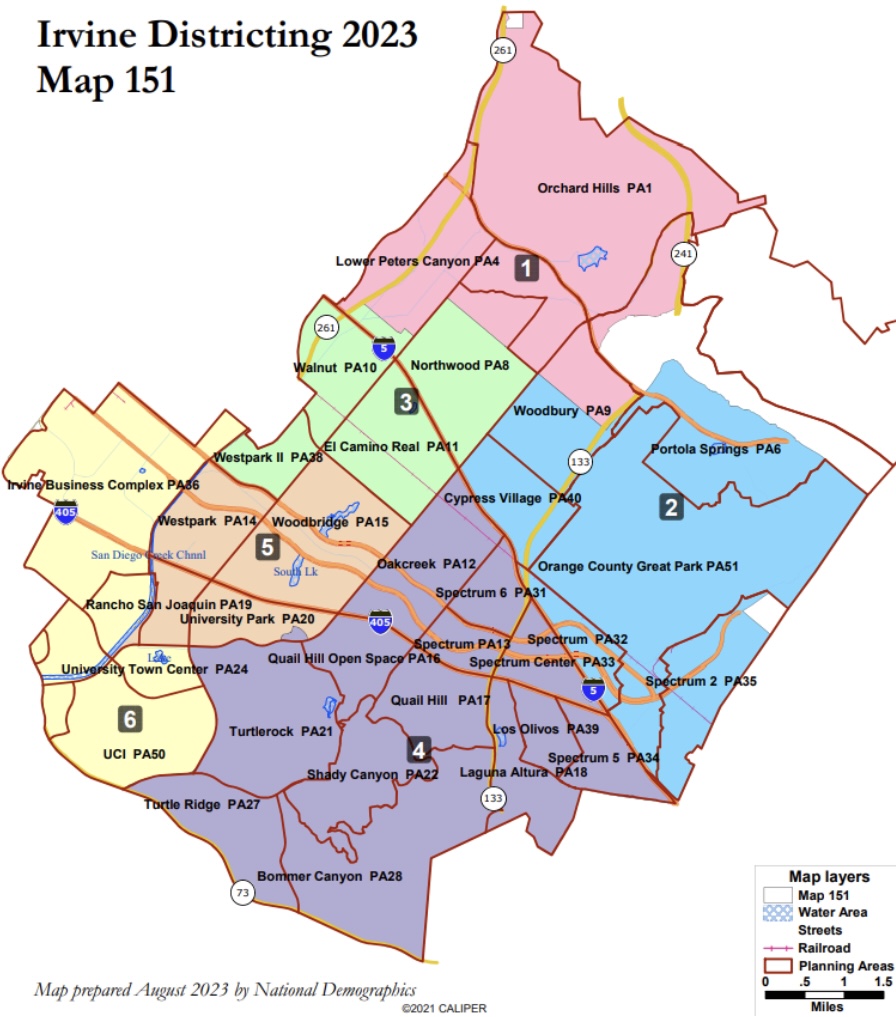The public voted to officially adopt Draft Map 151 for the new district-based elections system at the fifth public district-based election hearing on Tuesday, ahead of the final 2024 election.
The brand new process of district-based elections in Irvine comes after a City Council vote to change the current system. The city would be divided into small ‘districts,’ with one council member responsible for each area. The goal is to achieve better representation in accordance with the California Voting Rights Act, which emphasizes proportional voting systems to be used to remedy minority vote dilution, as described by FairVote.
“Communities having an opportunity to speak about these maps and explain their priorities has been a main way the public is consistently involved,” vice mayor Tammy Kim said.
Map 151, which was selected during the hearing, will keep most Northwood students from planning area 8 within district 3, but Orchard Hills residents will vote for their own representatives for district 1. The division of districts will direct which council members are responsible for each area, and is part of the preparation for the March 2024 vote which will decide whether the election system will be implemented.
During the process of narrowing down maps and opening the discussion to maps submitted by the public, the city also organized booths at community events for citizens to draw maps that reflect their priorities, including keeping communities and school boundaries intact. This change to greater public involvement was largely established at the public hearings that started in April, allowing the public to voice opinions and concerns about the draft maps.
However, there have been some worries from the public about their ability to access municipal leaders, as one representative may not be available to address every concern for a district with the same efficiency as a team working to resolve the issue would.
“Through districting, someone from a certain area only has one person that they can count on,” Kim said. “Whereas, right now, any resident can call all five council members for a problem. One can argue that there’s a loss of representation, and certain communities might not get the required attention because of a certain council member.”
However, Kim also highlights that having dedicated council members for each district may improve the time dedicated to all parts of Irvine, as constituencies would know the people in Irvine’s municipal government who are dedicated to solving region-centric issues and have a more efficient route of communication and representation.
As voters gear up for a final decision regarding district-based elections in March 2024, Irvine hopes to have more public voice involved in municipal decisions and elections.




















































